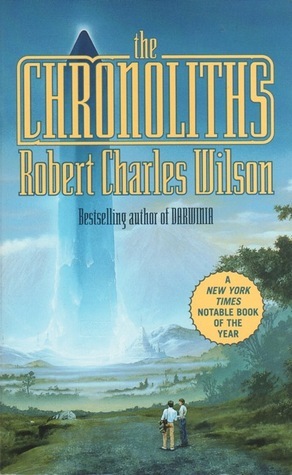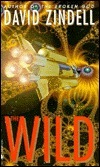
Darwinia
Book Description
A mysterious land rises from the depths of the ocean, an alien paradise teeming with strange flora and creatures that defy reality. As humanity grapples with the terror and allure of Darwinia, a group of wayward souls is drawn to its magical border, each harboring their own secrets and desires. Amidst escalating tensions, personal betrayals, and outside threats, their lives intertwine in desperate bids for survival and understanding. With every step into this haunting realm, the line between wonder and horror blurs. What sacrifices will they make for love, truth, and perhaps their very existence?
Quick Book Summary
In "Darwinia," Robert Charles Wilson imagines a world fundamentally altered when, in 1912, Europe vanishes overnight and is replaced by a mysterious new continent. This land, dubbed Darwinia, brims with surreal jungles, bizarre fauna, and alien terrors. As nations and explorers vie to penetrate its secrets, photographer Guilford Law joins a scientific expedition, risking his life to document the new world's wonders and dangers. Within Darwinia, Law and his companions face not just external perils but also challenges to their faith, sanity, and understanding of reality itself. The novel investigates themes of identity, memory, and human adaptation, revealing that the true nature of Darwinia is far stranger—and more pivotal to existence—than anyone suspects.
Summary of Key Ideas
Table of Contents
The Nature of Reality and Identity
The story opens with the "Miracle," a cataclysmic event in 1912 that erases all of continental Europe and parts of Asia and Africa, replacing them with a pristine, alien wilderness. This world is dubbed Darwinia by a stunned and frightened humanity. The disappearance of millions sends shockwaves through global society. In the aftermath, governments struggle to comprehend and contain the phenomenon, while religious and scientific communities clash over explanations for the event. Amid fear and awe, the new land provokes both debate and obsession.
Exploration and Human Curiosity
Guilford Law, a Canadian photojournalist haunted by personal loss, becomes central to the narrative. Drawn by a compulsion to uncover the truth of Darwinia, he joins the Finch scientific expedition to document the unfamiliar ecosystem. The expedition journeys deep into Darwinia’s interior, witnessing marvels and horrors: mutated creatures, fantastic plants, and the lingering marks of preexisting civilizations erased by the Miracle. For Law and his companions, exploration is both a physical ordeal and a profound philosophical journey.
The Cost and Meaning of Survival
Unknown to most characters, the reality of Darwinia conceals a cosmic battle. The shift is not merely geographic but existential: all of Europe has been replaced within a reality where memory, identity, and timelines are fluid. This secret narrative emerges as Law experiences visions and is visited by ghostly apparitions—connections to another self in another timeline. Gradually, he learns that humanity’s history is imperiled by ancient beings called the Builders and the Shadows, playing out a struggle on a scale beyond comprehension.
Interplay of Science, Religion, and the Unknown
As the expedition presses deeper, tension mounts between hope and horror. Law grapples with his own sense of self, torn between his loyalties to the expedition, memories of his lost family, and the burgeoning realization that nothing he knows about existence is certain. Encounters with mutated creatures and deadly environments test the limits of survival, while hidden agendas among fellow explorers heighten internal dangers. Friendships and faith are tested as they confront the blurred boundaries between science, religion, and cosmic forces.
The Unfolding of Cosmic Mystery
The climax of "Darwinia" reveals that personal and cosmic destinies are entwined. Guilford Law’s journey ultimately leads to acceptance of change and the interconnectedness of all realities. Through sacrifice and revelation, characters struggle to reconcile memory and identity with incomprehensible truths. The novel closes with a message of resilience, adaptation, and hope, suggesting that the human spirit persists even when the universe is at its most inexplicable, and that life’s meaning is found not in certainty, but in the search for understanding.
Download This Summary
Get a free PDF of this summary instantly — no email required.





